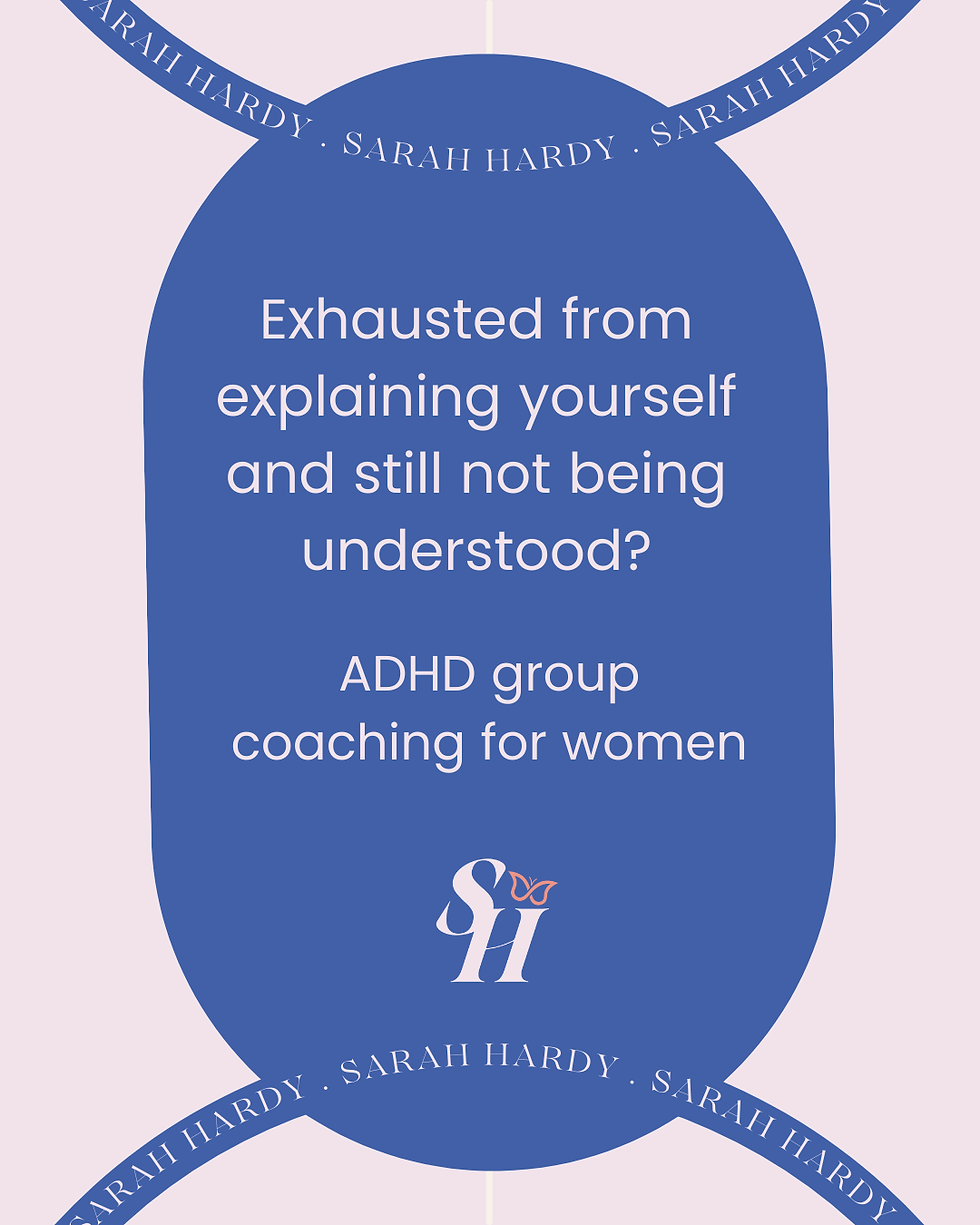“It’s Not That Big of a Deal…” But What If It Is? Why Some People Just Can’t “Let It Go”
- Sarah Hardy
- Feb 7
- 4 min read
Updated: Feb 15
When someone tells us, "It's not a big deal," what they often mean is "This doesn’t matter to me" or "I don’t see why you care so much."
But the reality is that meaning is subjective. What is insignificant to one person may carry immense weight for another.
For some, especially those with a strong sense of justice, letting things go isn’t about stubbornness or overreaction—it’s about deeply ingrained values, moral clarity, and sometimes even neurological wiring.
The Role of Neurodivergence in a Strong Sense of Justice
Many neurodivergent people—especially those with autism and ADHD—experience an intense sense of justice. This isn't just about fairness in a conventional sense but can extend to:
Rules and consistency – If a rule applies to one person, it should apply to all.
Ethical integrity – Dishonesty, even small white lies, can feel unbearable.
Empathy for others – Seeing someone treated unfairly might feel as painful as experiencing it firsthand.
Hyperfocus on "right and wrong" – The brain locks onto the injustice, making it impossible to move past.
Autistic individuals, in particular, may have quite black-and-white thinking, making perceived injustices feel non-negotiable. ADHDers may experience dopamine-driven outrage, where the emotional response is heightened and hard to regulate.
This means that even small instances of perceived injustice—like someone skipping a queue, a colleague taking credit for work, or being dismissed in conversation—can feel like personal betrayals.
The Cost of Caring Too Much
While a strong sense of justice can be a powerful force for good, it can also be exhausting.
Holding onto every unfair moment can impact:
Mental and physical health – Chronic stress, anger, or frustration take a toll.
Relationships – Not everyone shares the same values, and constant conflict can strain interactions.
Emotional bandwidth – Fighting every battle leaves little energy for the things that bring you joy.
This is where self-awareness and balance come in. The goal isn’t to stop caring but to choose where to direct your energy so that your well-being isn’t constantly sacrificed.
Signs You Have a Strong Sense of Justice
If you're unsure whether this resonates, consider if you:
✅ Feel deeply unsettled by unfairness (even if it doesn’t directly affect you)
✅ Struggle to let things go if they seem unjust or inconsistent
✅ Get physically agitated when witnessing unfairness
✅ Feel compelled to "correct" people when they’re wrong
✅ Find it difficult to move on from workplace politics or social conflicts
✅ Have been told you “care too much” or need to "pick your battles"
If these sound familiar, you likely have a strong justice drive—and while this can be an incredible strength, it also means you need to protect your own energy.
How to Support Yourself Without "Shutting Off" Your Values
You don’t need to stop caring, but you do need to make sure your caring doesn’t become self-destructive. Here are some ways to find balance:
Pause Before Reacting (or if at first thats not possible reflect on past interactions)
Ask: "Is this the best use of my energy right now?"
Consider: "Will engaging change anything, or will it just make me feel worse?"
Choose Your Battles
Some injustices require action. Others don’t.
If speaking up costs more than it solves, you can acknowledge the unfairness without engaging.
Channel Justice Into Impactful Outlets
Activism, advocacy, or volunteer work can help you feel like you’re making a difference rather than burning out over daily frustrations.
Set Boundaries With Your Own Thoughts
You don’t have to fix everything. It’s okay to say, "This is unfair, i'm unhappy this is happening but it isn’t mine to solve right now."
Practice Emotional Regulation
Techniques like deep breathing, journaling, or talking things through with trusted people can help release the intensity of the emotion without feeling like you're ignoring your values.
Recognise That Some People Just Won’t Get It
Not everyone will understand or share your sense of justice. That doesn’t make your feelings invalid, but it also doesn’t mean you have to convince them.
It’s frustrating when you know something is unjust, but someone shrugs it off or dismisses it. It can make you feel like you have to fight harder, explain better, or push more forcefully—but in many cases, the resistance isn’t about logic or understanding.
Some people:
Are comfortable in their ignorance – If something doesn’t impact them, they may not feel the need to care.
Benefit from the unfairness – Acknowledging the problem would require them to give up their own privilege, power, or convenience.
Are emotionally invested in their beliefs – Changing their view would mean admitting they were wrong, which many people resist at all costs.
Simply don’t care – As painful as it is, not everyone values fairness or justice in the same way.
Trying to change these people can be draining and demoralising. That’s why part of self-preservation is recognising who is worth your energy and when to walk away.
A good self-check is asking: “Is this person engaging in good faith?”
If yes → It might be worth having the conversation.
If no → No amount of explaining will change their mind, and your energy is better spent elsewhere.



